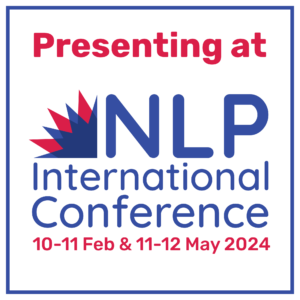Why Have Coach Supervision?
Whether you are a newly qualified coach starting to build your confidence and experience, or have many coaching years under your belt, supervision is an invaluable resource. It offers an opportunity to meet with an individual or group who absolutely gets what you do for a living. It’s where you meet fellow coaches who have often been where you are, and who are willing to learn from you too.
Many coaches are self-employed without the support structure employment offers. We juggle marketing, finance, IT and other business-related tasks with limited assistance and backup. Then there’s the day job, the actual coaching. Continuing to develop our coaching skills and practice, and stay connected to the greater coaching community with the support that offers, is of huge importance.
When looking for a Coach Supervisor some of the things to consider are their experience, training and familiarity with the type of coaching that you practice. My supervision training was certified by both The Association for Coaching and The Association for NLP as I use multiple coaching modalities. As with coaching, personal chemistry is key of course, so do ask for a preliminary conversation with prospective supervisors to see if they are right for you.
What is Supervision?
Supervision is a safe, learning space where you can share and offload any difficulties you are experiencing as well as better understanding your role in your successes. With a focus on reflective practice, it facilitates the consolidation of the new learning and understanding you are gaining from your ongoing coaching practice.
Supervision is a collaboration, a sharing exploration. I think of it as super-vision. Just as we hold the light for our clients on their coaching journeys, super-vision is an opportunity for us all to gain new perspectives and find an expanded vision for ourselves in our coaching relationships.
What Can Supervision Do?
To explain the benefits of coach supervision it’s probably easiest to use examples. I’ve changed the names but here is a brief outline of two real supervision sessions which demonstrate some of the range of support that supervision offers. Scenario one shows how the coach is helped by the supervisor to reconnect to their own resources, Scenario two shares how a coach is helped to appreciate more fully just how their coaching skills contributed to making a great session so impactful.
Scenario One -“Bullying Boss”
Coach Jane was working with coachee Sue, who was being “bullied” at work by her line manager. Jane was emotional when she talked about Sue as she felt the situation was so unfair. Jane looked stressed as she shared her experience with this client, and she stated that Sue’s manager should be sacked.
I noticed that Jane looked quite impacted by what she was saying and asked her how she was feeling right now as she told me about it. Jane was surprised when she realised how deeply she was feeling this. Becoming aware of her own state, she was able to take some deep breaths and centre herself.
This allowed her to step back and consider what was happening inside her. After reflecting for a moment, Jane talked about when she had been bullied and realised that some of her reaction was coming from her own past. Having this awareness helped Jane to see Sue’s situation as separate and different to her own.
I then asked about how Sue was describing her situation? Was she using any NLP Meta Model patterns that might suggest some stuckness in her thinking? How was her state like when she talked about this? What meaning was she making of the interactions with her manager? Where was her sense of agency in this relationship? What metaphors if any was Sue using?
As Jane had changed her own state and become more centred herself, she was much more aware of some of the patterns that Sue was using. Sue talked in global terms about what a bad person her manager was, but Jane recalled that there had been times where Sue had mentioned ways in which this manager had supported her.
Perceptual Positions
We talked briefly about what might be happening for Sue’s manager and discussed how guiding Sue through a perceptual positions exercise might help her gain some insights about her interactions with her manager.
As we explored, Jane was bubbling with ideas of the many ways she could work with Sue, and we brainstormed multiple strategies and exercises she could use. More importantly, Jane was back and fully present as a coach, once more able to support her client with all her skills and tools, which had been temporarily offline.
At the end of the supervision session Jane was going back to the same client in the same situation but was approaching it from a completely different position. Instead of joining her client in her problem space, Jane was there as a competent, centred coach with a whole range of ways to explore the situation with her client, potentially helping Sue access her own resources, in a parallel way to how we had reconnected Jane to hers in our supervision session.
Scenario Two – ‘Magical’ Coaching Session
Coach Elaine mentioned in passing a session she had recently had with coachee Matt who she had talked about in previous sessions. She intended it as a brief update, to say that while previously she had struggled to help Matt, on this occasion the session was very productive and real progress had been made.
I noticed that when she talked about this session it was as though she had been a bystander and that Matt had made this breakthrough all on his own. Sensing that Elaine had played a more active part, I suggested we spend some time talking about the session, which Elaine was happy to do.
When I asked how the session had unfolded, Elaine told me that Matt had arrived in an agitated state, and she had helped him calm down, he had then talked about how unhelpful his colleagues were and how no one offered to help him when he felt it was obvious that he was stuck.
Issues he had brought previously included him feeling he had to be perfect and not wanting to appear weak by asking for help. At the same time, he was annoyed when help wasn’t spontaneously offered. As the session progressed, Elaine helped him begin to acknowledge that he gave no clues to his colleagues that he was struggling. He said his colleagues regularly asked each other and him for support and advice. Elaine worked with Matt to come up with a clear plan of what help he was going to ask for and from which colleague. He even had a plan B if that person couldn’t help him.
As she talked, Elaine was not hearing how she had contributed to all of this, so I realised I needed to help her refocus her attention so she could become more aware of the part she had played in the session. I first asked how he had calmed down at the beginning and she explained that this was something they had worked on before, so she was able to remind him of strategies they had used, she explained how she had also conversationally got him to relax and broaden his focus by asking him about other things she knew he felt skilful and capable about.
Appreciating Your Skills and Experience
Elaine explained how she had used lots of pacing and leading at the beginning, which helped him feel understood. By conversationally using perceptual positions to remind him that his colleagues frequently asked for help, and he didn’t think less of them for it, she helped Matt to reframe his request for help, and settle some of his fears. She got him to see this issue from a broader perspective and in the context of his larger goals.
She laughed as she shared how she had playfully challenged the mind reading he was doing about what his colleagues thought, and was able to let him appreciate how they in turn couldn’t magically know what his requirements were either.

All of this and so much more was done within the safe space Elaine had created and was able to hold for Matt, so he could explore this issue and come to new understandings, which allowed him to make his plan of action.
By exploring the session with Elaine and by me explicitly detailing the impact of her actions on the coaching session, I was able to help her appreciate just how much she had contributed to this session.
Understanding her part more fully would allow her to work more confidently with clients in future, accessing her skills more consciously and with greater awareness. Elaine left our supervision session with a whole new appreciation of just how skilfully she had worked with this coachee, and how the success of the session was not down to some happy accident, but a result of her skills and experience.
These are just two examples of what can happen in a supervision session. Issues can be as varied as there are coaches and clients. I have worked on everything from the coach’s own confidence issues, clients the coach finds difficult to work with, ethical issues and even safety issues. I firmly believe that supervision is the ideal way for a coach to be supported as they continue to learn and develop in their field.
Finding a Supervisor
Muriel is an Accredited Professional Coach with nearly 20 years’ experience. As a Certified Coach Supervisor, she works with coaches from all training backgrounds. She is an NLP Trainer and has twice supervised the coach team for the London Generative Coaching Programme.
Contact Muriel at muriel@murielmcclymont.com
Did you like this post?
Then check out our events and courses
Sign up to our e-learning
Where to find us
For posts, events, free open days and more, follow NLP School on:
Where to find Robbie
Twitter: @RSteinhouse
LinkedIn: Robbie Steinhouse
Latest Posts
- NLP Training, How to Find the Best NLP Course For You.
- What is NLP, and How Could It Help Me?
- NLP Techniques For Managers & HR Professionals
- Why Have Coach Supervision?
- The Meta Model – How Beliefs Are Born









